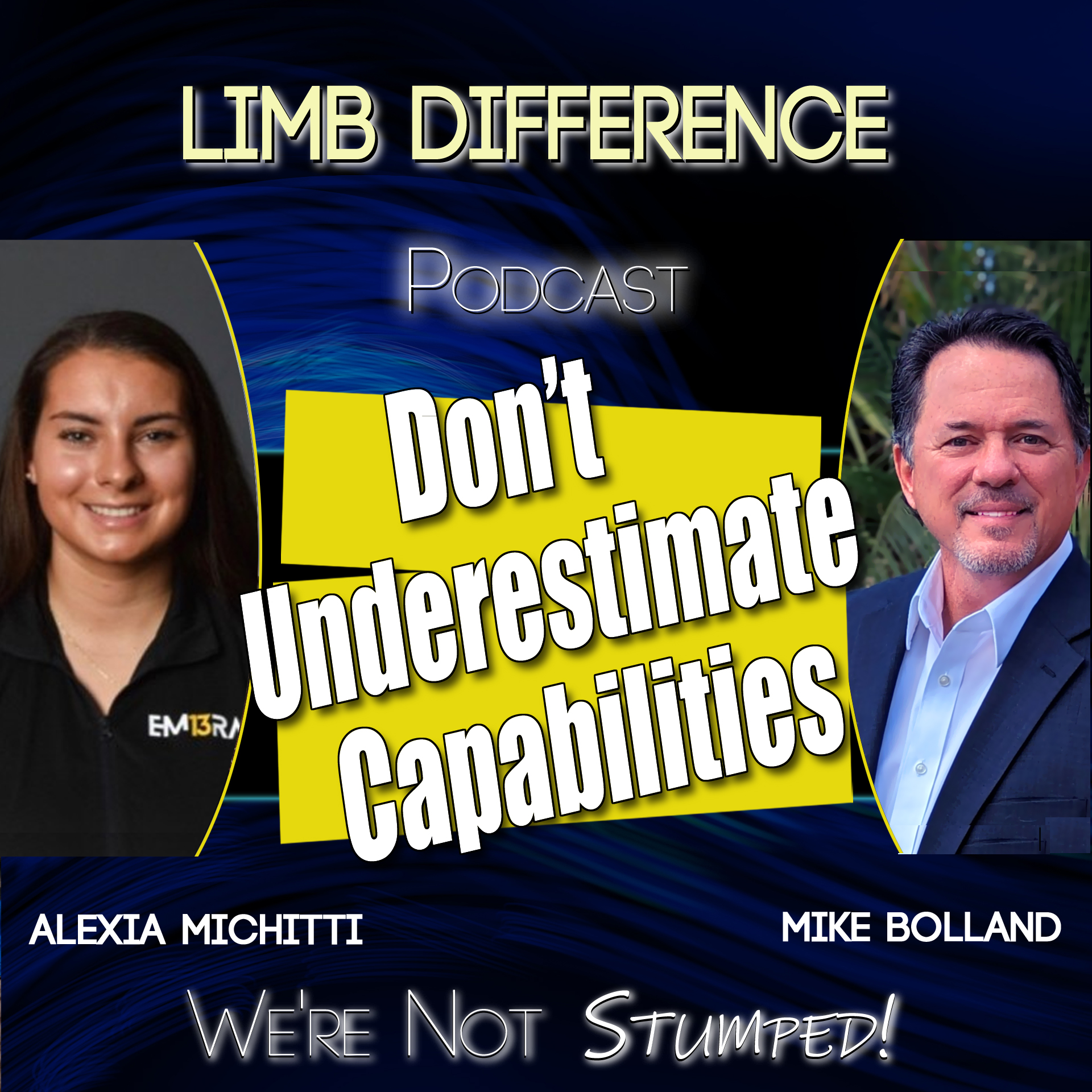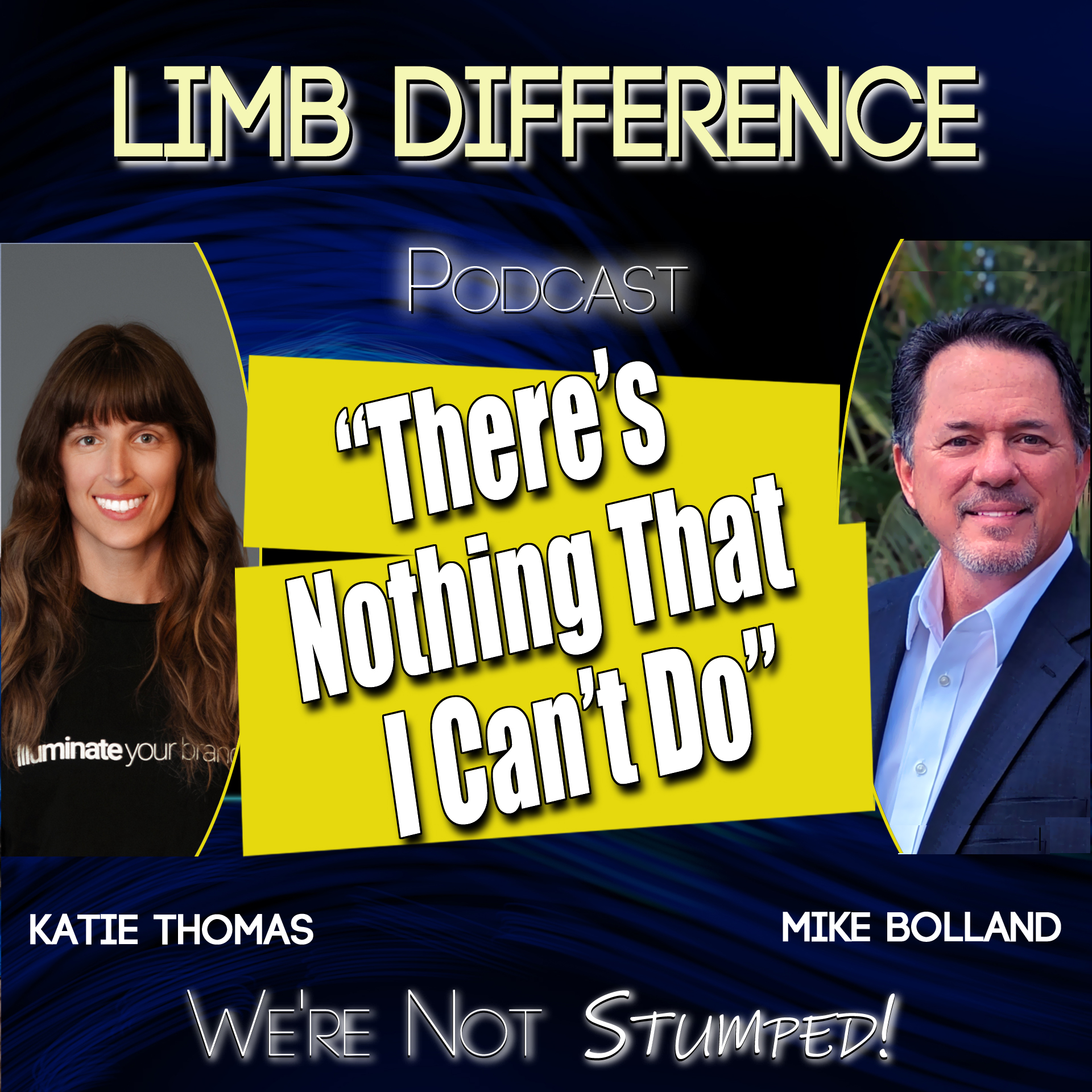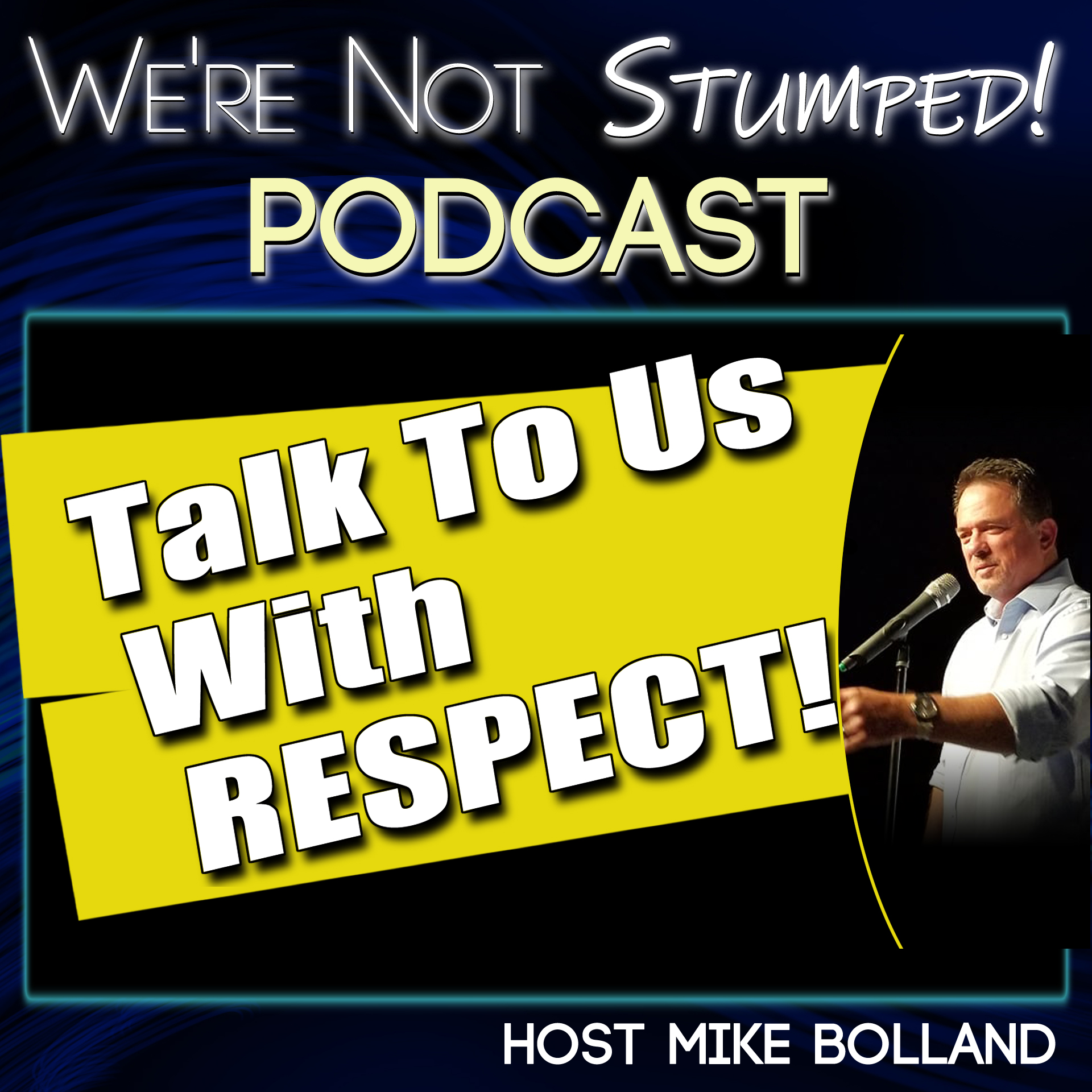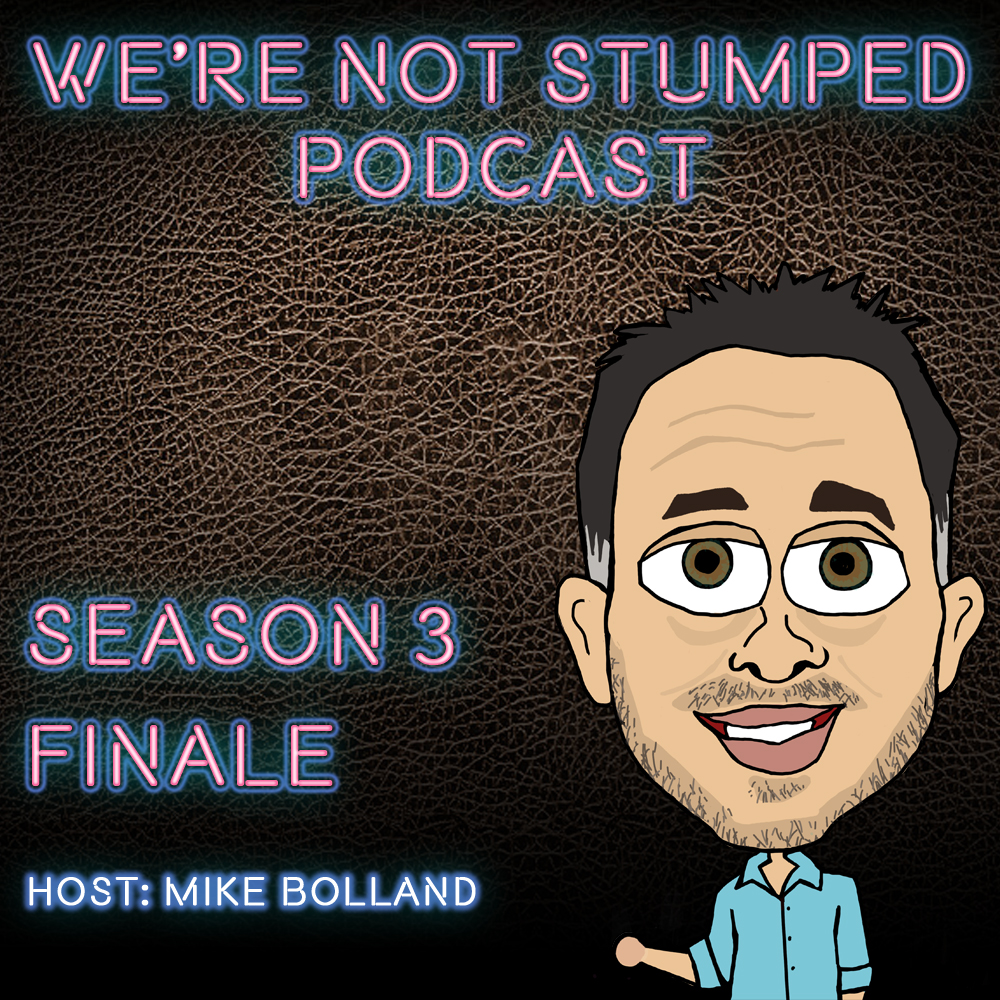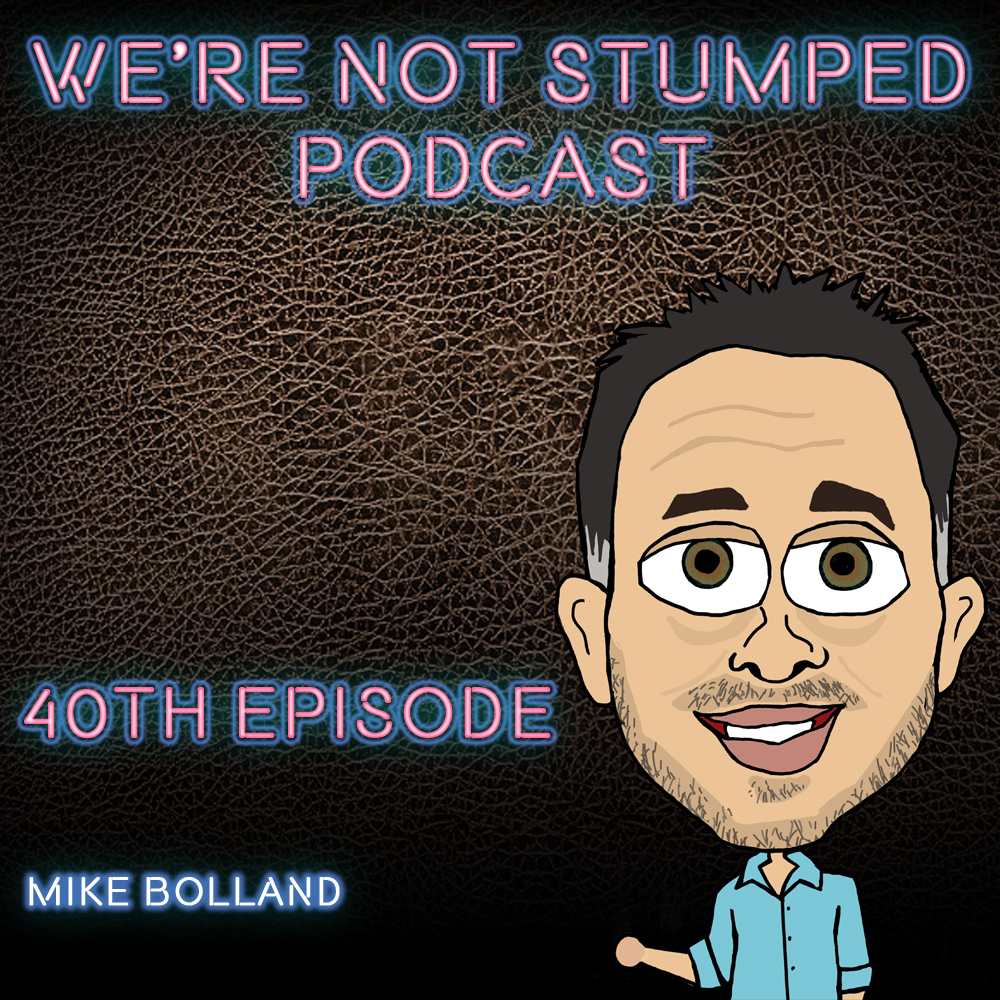Congenital Amputee Podcast
Kicking Barriers: Alexia Michitti on Soccer, Innovation & Empowering Kids with Limb Differences
Host Mike Bolland sits down with Alexia Michitti—a public speaker, athlete, and entrepreneur born without a right hand. Together, they reflect on their shared experiences of limb difference and Alexia’s powerful journey of resilience, determination, and innovation. Alexia shares how she’s breaking barriers in sports and beyond—from representing the U.S. in the first Women’s Amputee Soccer World Cup, to filing a patent for adaptive clothing through her brand Em13race (https://em13race.com/), to finding her voice as a motivational speaker. She opens up about life without a prosthetic, her role models, and her passion for inspiring children with limb differences to embrace their uniqueness.
Katie Thomas on Parenting, Advocacy, and Living One-Handed
In this heartfelt and uplifting episode of We’re Not Stumped, host Mike Bolland welcomes Katie Thomas for a conversation filled with honesty, humor, and hard-earned wisdom. Born without her right arm below the elbow, Katie began receiving care at Shriners Hospital in Tampa at age 3 and experimented with various prosthetics throughout her childhood. Over time, she discovered that prosthetics were a helpful tool—but not essential for her to live a full, capable life. Now a devoted parent, Katie opens up about raising her son, who has Witteveen Colk syndrome, a rare genetic disorder. She shares her journey through early intervention services, advocating for genetic testing, and ensuring her child receives the support he needs. Her advice to parents? Trust your instincts, push for answers, and never hesitate to speak up for your child.
Apparently, I Need a Prosthetic to Wash Apples…
Here’s the actual quote from a company called the LN4 Hand Project: "A prosthetic hand is an invaluable asset to an individual without an upper limb. An upper limb prosthesis can determine whether or not an individual is able to be employed, contribute to household duties, or provide an increased sense of independence." As a successful one-handed person—a podcaster, speaker, nonprofit founder, and former pro bowler—I have to say, that sentence overlooks the truth: people with limb differences are capable with or without a device. And it’s not just the language. Companies like Taska Prosthetics create videos that show one-handed people doing things like washing apples, as if that’s the pinnacle of independence. While I love and appreciate prosthetics, we can do better. In this podcast, I break down the problem with this kind of messaging, share my lived experience, and challenge the assumption that a prosthesis defines your ability to succeed.
Unstoppable: Jessica Cox’s Journey as the World’s First Armless Pilot
A must listen! In this dynamic episode of We’re Not Stumped, host Mike Bolland speaks with Jessica Cox, a pioneering pilot, martial artist, and motivational speaker born without arms. Jessica shares her journey of overcoming challenges, embracing independence, and inspiring others worldwide. She reflects on her childhood, the support of her parents, and her decision to forgo prosthetics in favor of using her feet. She recounts her fight to regain her driver’s license after unfair scrutiny, a moment that reinforced her resilience. Jessica also discusses earning her black belt in Taekwondo and becoming the world’s first armless pilot—turning fear into empowerment. Through her nonprofit, Right Footed Foundation International, Jessica mentors children without arms, encouraging them to chase their dreams. Looking ahead, she aims to build her own plane for greater independence. This episode is a testament to determination, self-belief, and living without limits. Don’t miss this powerful conversation!
We’re Not Stumped Season Three Finale With Host Mike Bolland
Season three is a wrap, and what a great [...]
Special 40th We’re Not Stumped Congenital Upper Limb Loss Podcast with Billy Jack History
Are you a #prosthetist? Do you find vintage #prosthetics [...]
About Congenital Amputees
A “congenital amputee” is an individual who is born with one or more limbs missing or underdeveloped. In congenital amputation, the absence of a limb occurs during the prenatal development of the fetus and is typically due to genetic factors or developmental issues in the womb.
Congenital amputations can affect any limb, including the arms and legs, and they can vary in severity. Common causes and factors contributing to congenital amputations include:
- Genetic Factors: Some congenital limb differences are linked to genetic mutations or conditions that affect limb development during early fetal development.
- Teratogens: Exposure to teratogenic substances or environmental factors during pregnancy can disrupt normal limb development, leading to congenital amputations.
- Vascular or Blood Flow Issues: Insufficient blood flow to the developing limbs during pregnancy can result in limb malformation or amputation.
- Amniotic Band Syndrome: In some cases, fibrous bands in the amniotic sac can entangle and constrict fetal limbs, causing limb differences.
- Congenital Disorders: Certain congenital disorders, such as ectrodactyly (also known as “lobster claw hand”), thalidomide syndrome, or Holt-Oram syndrome, can result in congenital limb differences.
Congenital amputees face unique challenges related to their limb differences, but they often learn to adapt and find ways to perform daily activities and pursue their goals. Depending on the severity and location of the limb difference, some individuals may benefit from assistive devices, prosthetic limbs, orthotic devices, or surgical interventions to improve their functionality and quality of life.
Supportive environments, education, and access to healthcare and rehabilitation services are essential for individuals with congenital amputations to thrive and fully participate in society. Advocacy groups and organizations dedicated to limb differences often provide valuable resources and support to individuals and their families.

